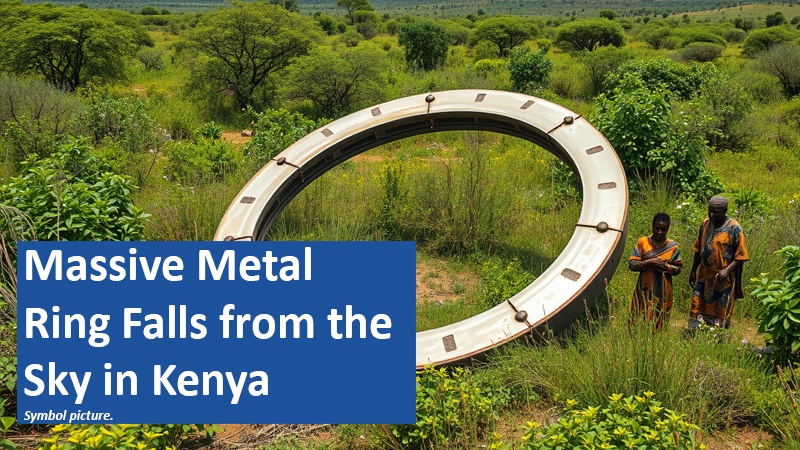A massive metal ring, weighing over half a ton, fell from the sky on Monday, landing in Mukuku, a village in southern Kenya. The 1,100-pound object caused a loud noise resembling thunder but caused no injuries or damage. Preliminary investigations suggest it originated from a space rocket.
By Joseph Gutierrez
Details of the Fallen Object

The metal ring, with a diameter of approximately 8.2 feet, appears to have fallen from space, according to the Kenyan Space Agency. Initial assessments indicate it is likely a separation ring from a launch vehicle, a component typically expected to burn up during reentry or land in uninhabited areas. The debris has been recovered and is under examination to determine its exact origin.
Possible Rocket Origins
Authorities have not confirmed which rocket the debris originated from, leaving two primary suspects: India’s Polar Satellite Launch Vehicle (PSLV-CA) and SpaceX’s Falcon 9. The PSLV-CA is considered the more likely source due to its closer launch date and its 9.2-foot diameter, closely matching the dimensions of the fallen ring. In contrast, the Falcon 9’s diameter of 12 feet makes it a less probable candidate.
Risks of Space Debris
Space debris reentering Earth’s atmosphere poses a growing concern as more rockets are launched into orbit. While most debris burns up upon reentry, incidents like this highlight the need for improved safety measures to ensure hazardous components do not land in populated areas. Experts emphasize the importance of international cooperation to develop sustainable practices in space exploration.
Ongoing Investigations
Kenyan authorities and space experts are working together to confirm the debris’ origin. This investigation underscores the challenges of tracking and managing the remnants of space missions. As global rocket launches increase, incidents involving space debris could become more common, demanding stricter international regulations and better reentry protocols.
The incident in Kenya highlights the growing risks associated with space debris as global rocket activity increases. Improved tracking systems and international collaboration are crucial to minimizing the dangers posed by falling components. As space exploration expands, adopting stricter safety measures will be essential to protect both people and the environment.
Based on content from www.futurezone.at and own research.